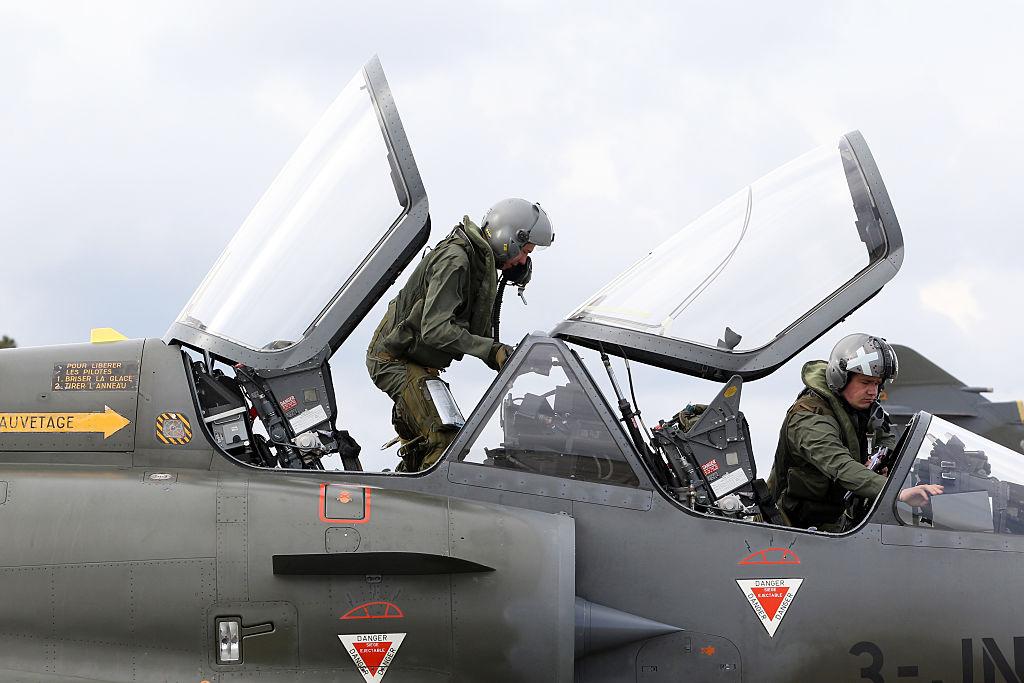Nato to join the US-led coalition against Isis fighting in Iraq and Syria
Nato chief confirms European body will assist in fight against terrorism in a non-combat role ahead of summit with Donald Trump

Your support helps us to tell the story
From reproductive rights to climate change to Big Tech, The Independent is on the ground when the story is developing. Whether it's investigating the financials of Elon Musk's pro-Trump PAC or producing our latest documentary, 'The A Word', which shines a light on the American women fighting for reproductive rights, we know how important it is to parse out the facts from the messaging.
At such a critical moment in US history, we need reporters on the ground. Your donation allows us to keep sending journalists to speak to both sides of the story.
The Independent is trusted by Americans across the entire political spectrum. And unlike many other quality news outlets, we choose not to lock Americans out of our reporting and analysis with paywalls. We believe quality journalism should be available to everyone, paid for by those who can afford it.
Your support makes all the difference.The North Atlantic Treaty Organisation (Nato) is joining the US-led international coalition fighting Iraq and Syria based extremists Isis, the institution’s secretary general has confirmed.
“This will send a strong message of unity and Nato’s commitment to the fight against terrorism,” Jens Stoltenberg said in Brussels on Thursday, ahead of a Nato summit attended by new US President Donald Trump.
Mr Trump is seeking to push the US’ Nato allies to take on a more active role against extremism. On landing in the city on Wednesday he told reporters that the deadly suicide bombing of Manchester Arena earlier this week underlined how sorely greater cooperation is needed in combating terrorism.
While all 28 nations in Nato have individually joined the coalition - some sending war planes to assist in US-led bombing of the jihadists’ positions in Syria and Iraq - the alliance has not formally followed suit.
Mr Stoltenberg was keen to stress Nato’s role would not involve combat, instead expanding its use of surveillance planes, stepping up Iraqi training programmes, and creating a new cell in Brussels to co-ordinate anti-terror intelligence and planning. All 28 nations are also expected to reaffirm a commitment to spending two per cent of annual GDP on defence.
There was reportedly pushback against the plans from member states Germany and France, AFP quoted diplomatic sources as saying, but worries were smoothed out ahead of Mr Stoltenberg’s announcement.
“Nato as an institution will join the coalition,” one senior diplomat involved in the discussions told Reuters news agency. “The question is whether this just a symbolic gesture to the United States. France and Germany believe it is.”
During his election campaign Mr Trump branded the Cold War era American-European military alliance “obsolete”, but has reneged on his promise to scrap it since entering office in January.
The new president faced a colder welcome in Brussels than he received during the first stops of his inaugural foreign tour - Riyadh, Jerusalem and Bethlehem.
He flew to Brussels from a 24 hour visit to Pope Francis in Rome.
Air Force One then travels to Sicily for a meeting of the G7 before Mr Trump flies back to Washington DC.
Join our commenting forum
Join thought-provoking conversations, follow other Independent readers and see their replies
Comments